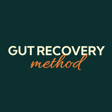
Why Stress Is So Bad For Your Gut
Ready to resolve your gas, bloating, constipation, and other digestive problems for good? Watch my free Gut Recovery Masterclass to learn more: https://gutrecoverymethod.com/register
Follow me on Instagram for short form content: https://www.instagram.com/christian_yordanov/
Hosted by functional health practitioner and longevity author, Christian Yordanov, this podcast is dedicated to helping women struggling with gastrointestinal problems such as gas, bloating, constipation, and other digestive distress.
Whether you have a diagnosis such as IBS (irritable bowel syndrome), IBD (inflammatory bowel disease; Crohn's disease or ulcerative colitis), SIBO (small intestinal bacterial overgrowth), GERD (gastroesophageal reflux disease) or not, you will benefit from the insights we'll share.
Join us as we explore the intricate connections between gut health and overall well-being, addressing common issues like fatigue, poor sleep, hormonal imbalances, and anxiety.
Learn how stress impacts your digestive system and discover effective strategies to reduce inflammation, improve digestion, and enhance your quality of life.


